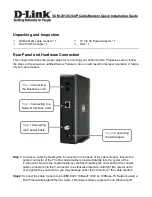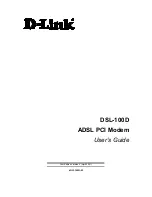
Thank you for choosing the Mobile Broadband USB
Stick. With your USB Stick, you can access a wireless
network at high speed.
Note:
This manual describes the appearance of the USB Stick, as well as the procedures for
preparation, installation, and removal. For operation details about the management
program, see the online help included in the management program.
Getting to Know Your USB Stick
The following figure shows the appearance of the USB Stick. It is provided only for your
reference. The actual product may be different.
Rotatable USB Connector
It connects the USB Stick to a PC.
Indicator
It indicates the status of the USB Stick.
Green, blinking twice every 2s: The USB Stick is powered on.
Green, blinking once every 0.2s: The software of the USB Stick is being upgraded.
Green, blinking once every 2s: The USB Stick is registering with a 2G network.
Blue, blinking once every 2s: The USB Stick is registering with a 3G/3G+ network.
Cyan, blinking once every 2s: The USB Stick is registering with a LTE network.
Green, solid: The USB Stick is connected to a 2G network.
Blue, solid: The USB Stick is connected to a 3G network.
Cyan, solid: The USB Stick is connected to a 3G+/LTE network.
Off: The USB Stick is removed.
Cover
It protects the microSD card and the SIM/USIM card.
SIM/USIM Card Slot
It holds a Universal Subscriber Identity Module (USIM) card.
Getting Your USB Stick Ready
1.
Slide the back cover to remove it from the USB Stick.
2.
Insert the SIM/USIM card into the corresponding card slots, as shown in the following
figure.
3.
Replace the back cover and slide it into place.
Note:
Ensure that the beveled edge of the SIM/USIM card is properly aligned with that of the
SIM/USIM card slot
Do not remove the SIM/USIM card when the card is in use. Otherwise, the card as well
as your USB Stick may get damaged and the data stored on the card may be corrupted.
Installation/Removal Guide
The procedure for installing the management program depends on the operating system
(OS) installed on your PC. The following sections take Windows Vista as an example.




















